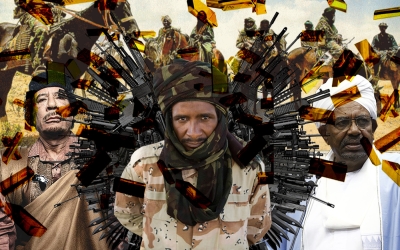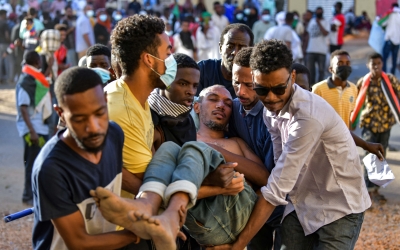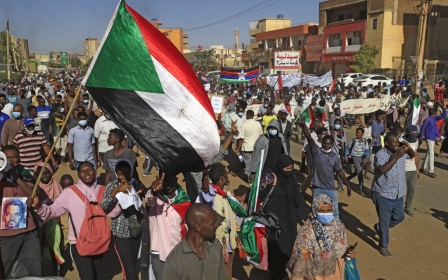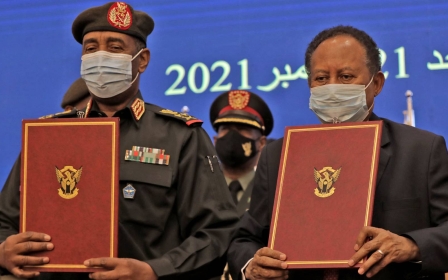Sudan coup: Hemeti claims that civilian PM backed military takeover
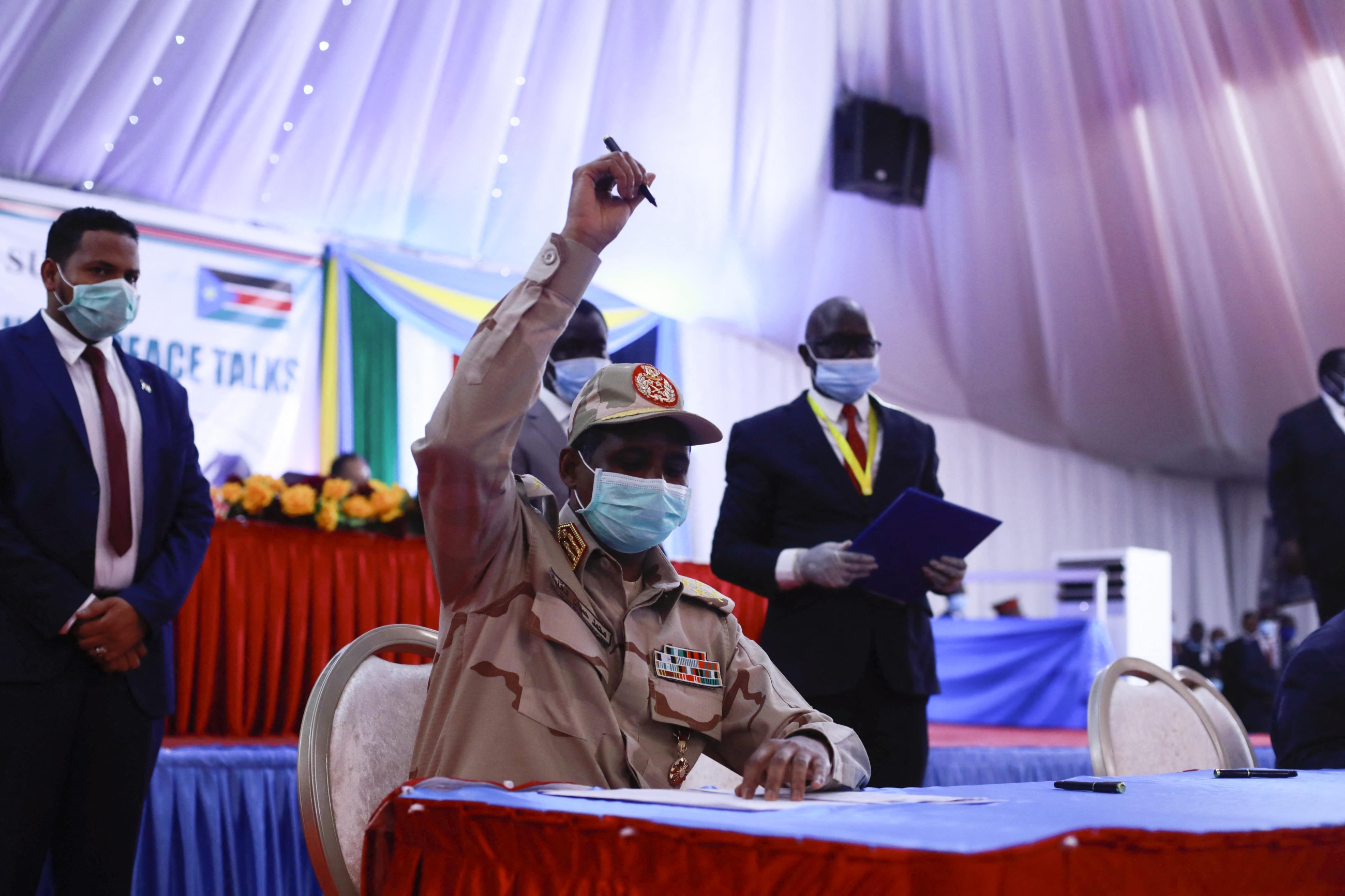
Sudan's Prime Minister Abdalla Hamdok was "completely agreeable" to October's military coup and knew about it before it happened, the deputy head of the country's new governing sovereign council and notorious former warlord linked to atrocities in Darfur, General Mohamed Hamdan Dagalo, said in an interview on Friday.
On 25 October, Sudan's top general, Abdel Fattah al-Burhan, declared a state of emergency, ousted the civilian-led government, and upended a two-year transition to civilian rule.
Hamdok, who was detained during the power grab, signed a controversial deal with the military last week that effectively ended his house arrest and reinstated him to power.
“What happened on 25 October was the ultimate outcome of a long process. Many discussions were made, and many initiatives proposed,” Dagalo, also known as Hemeti, told Al Jazeera.
New MEE newsletter: Jerusalem Dispatch
Sign up to get the latest insights and analysis on Israel-Palestine, alongside Turkey Unpacked and other MEE newsletters
“The prime minister himself proposed two initiatives during the meetings. We were left with three options, the best of which was the move we took, and it was completely agreeable to the prime minister himself,” he said. “We did not make such a move on our own.”
The military takeover was “the best option to stop what was becoming a spiralling crisis”, he argued.
Hamdok recently told Al Jazeera he was not aware the coup was going to happen.
Hemeti was once the head of the notorious Janjaweed militias, the "devils on horseback", accused - along with the Sudanese Armed Forces (SAF) - of genocide and widespread atrocities in Darfur in the early 2000s.
A former warlord from a Chadian Arab clan, Hemeti is now one of the most powerful and feared men in Sudan. His forces have been out on the streets of Khartoum and other major cities suppressing mass protests since the 2019 uprising that led to the ousting of longtime rule Omar al-Bashir.
'Three Nos'
In the month since the coup, authorities have arrested dissidents, restricted internet coverage, and killed at least 42 civilians, wounding hundreds more.
Amid popular anger over the killing of demonstrators by armed forces in recent weeks, Hamdok announced on Twitter on Saturday that he had dismissed the chief of police, Lieutenant-General Khaled Mahdi Ibrahim al-Emam, and his deputy.
The two men were replaced by Lieutenant-General Anan Hamed Mohammed Omar as the new police chief and Major General Muddathir Abd al-Rahman Nasr al-Din as his deputy - although it remained unclear whether the move would quell unrest.
After a series of "march of millions" demonstrations against the coup, nationwide protests against Hamdok broke out for the first time on Thursday after he signed the deal with the military.
Demonstrators accused him of committing "treason" and vowed to continue protesting against the newly formed transitional government.
Chanting "the people want the fall of the regime" and "power to the people, a civilian government is the people's choice", demonstrators gathered in the capital city of Khartoum and its twin city of Omdurman to oppose the military and Hamdok.
Hassan Mohamed, a 30-year-old protester at the 40 Station neighbourhood in Khartoum, told Middle East Eye that he felt there was "no difference between Burhan and Hamdok".
"Burhan has killed protesters, seized power, and hijacked the revolution, and Hamdok stood by him as they signed the deal which would keep them both in power," said Mohamed.
His feelings were echoed by protest leader Mohamed Anwar, who led the demonstrations in the 40 Station neighbourhood in Khartoum.
Speaking to thousands of people in the area, Anwar dubbed the alliance between the military and civilian-led transitional government an extension of Bashir's 30-year rule.
“We stick with the three 'Nos', which are no partnership, no compromise, and no negotiations because we have learned the lesson from the first version of the power-sharing between the military and civilians," said Anwar.
Middle East Eye delivers independent and unrivalled coverage and analysis of the Middle East, North Africa and beyond. To learn more about republishing this content and the associated fees, please fill out this form. More about MEE can be found here.


